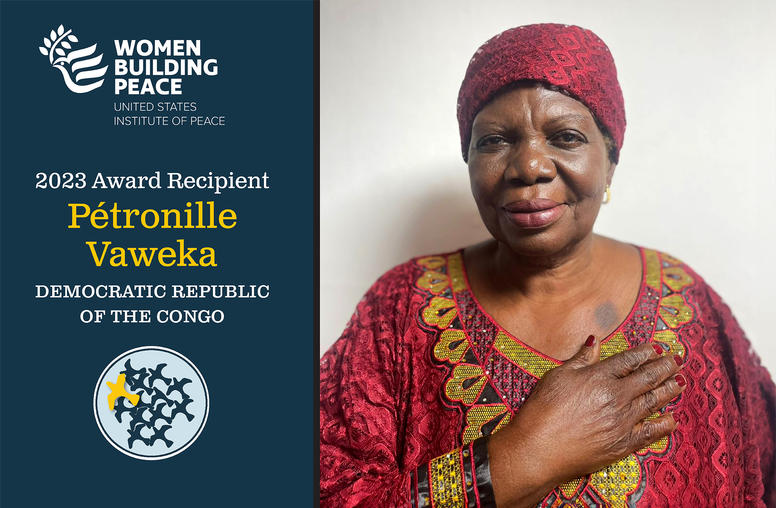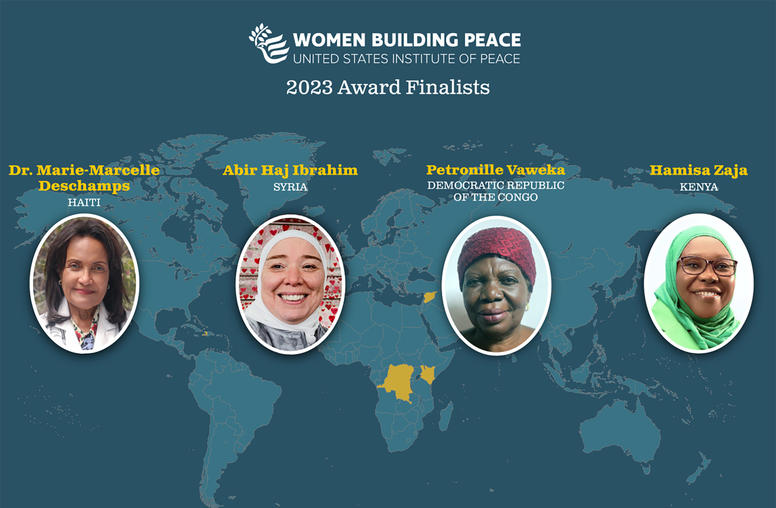U.S. Institute of Peace President Calls for New Approach to Meeting Humanitarian Needs
J. Paul Johnson, Senior Press Officer, USIP
Office: 202-429-7174
Mobile: 202-507-3896
E-mail: pjohnson@usip.org
Istanbul, Turkey -- U.S. Institute of Peace President Nancy Lindborg submitted the Institute’s commitment at the World Humanitarian Summit’s High-Level Leaders’ Roundtable: “Changing People’s Lives: From Delivering Aid to Ending Need.” The commitment focuses on the importance of preventing and ending the violent conflicts that are now driving historic levels of global displacement and unmet humanitarian needs. The commitments made by USIP to further advance significant changes in our approach to the humanitarian system are outlined below:
Commitments: Commit to a new way of working that meets people’s immediate humanitarian needs, building toward reduced risk and vulnerability in the longer term through the achievement of collective outcomes.
- Anticipate, Do Not Wait to invest in risk analysis and to incentivize early action in order to minimize the impact and frequency of known risks and hazards on people.
- USIP, working through a global network of partners, commits to strengthen efforts to undertake localized data collection in conflict areas that face complex humanitarian crises to provide tools for early warning, adaptation to changing conflict dynamics, communicating and sharing of violent conflict data, and measuring peacebuilding outcomes.
- USIP commits to convene a senior-level USG Interagency-NGO group to propose an approach to how government, security forces, civil society and other actors may cooperate more effectively to prevent and counter violent extremism.
- As an outcome of the Study Group on Fragility, a partnership with the Carnegie Endowment for International Peace and the Center for a New American Security which has convened diplomacy, development, defense, NGOs and other actors, USIP commits to propose recommendations for how the USG can more effectively focus attention on and resources in fragile areas as a means of reducing the scope and duration of crises.
- Reinforce, Do Not Replace to supporting and investing in national and local leadership and response systems wherever possible, avoiding duplicative international mechanisms.
- USIP commits to leverage our Generation Change, Global Online Campus and network of facilitators programs to deepen our efforts to strengthen local actors to conduct conflict mediation and negotiation activities and link local actors to national level institutions, actors and processes to manage conflict more effectively so it doesn't become violent.
- Transcend Humanitarian-Development Divides: Work together, toward outcomes that ensure humanitarian needs are met, while at the same time reducing risk and vulnerability over multiple years and based on the comparative advantage of a diverse range of actors. The primacy of humanitarian principles will continue to underpin humanitarian action.
- USIP, through its convening power, commits to working with a broad coalition of government and nongovernment actors in the U.S., working toward shifting the incoming administration’s approaches to addressing aspects of violent conflict, which is at the root of complex humanitarian crises.
- In partnership with World Food Program-USA, InterAction, U.N. Foundation and the Foreign Policy Institute (FPI) of The Johns Hopkins University’s Paul H. Nitze School of Advanced International Studies (SAIS), USIP commits to continuing the “Strengthening the Humanitarian System” roundtable series, a high-level dialogue between government, nongovernment and multilateral humanitarian and development actors which serves as a forum for making recommendations for how the local, national and international actors may work together to strengthen the humanitarian system and close the gap between humanitarian aid organizations and development institutions.
- USIP, through its convening power, commits to working with a broad coalition of government and nongovernment actors in the U.S., working toward shifting the incoming administration’s approaches to addressing aspects of violent conflict, which is at the root of complex humanitarian crises.
###
The United States Institute of Peace is a Congressionally-created, independent, nonpartisan institution. Its mission is to prevent, mitigate, and resolve violent conflicts around the world by engaging directly in conflict zones and by providing analysis, education, and resources to those working for peace.

